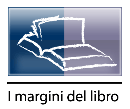 |
4, 2010 | |||
| Abstracts | versione italiana | |
| Article |
Rodolfo Zucco
Dediche di Giorgio Caproni
In Giorgio Caproni's Opera in versi dedications are very frequent and dealt out among all the textual levels: from the whole to the single poetic texts. This is the most evident symptom of a "dedication drive" that the critical edition permit to investigate also into the system internal dynamics and into the variants aspects. The "usus" of a dedication which results from the diacrony and syncrony into the opera is characterized by superimposition and interference, events of suppression and compensation, tendency to use the institute to outline around the author his familiar and friendly circle, marked preference for the complete nomination (name, surname), frequently circumstantial. The not appositional, but constitutional of dedication and poetic text, character comes out, an organical relation that finds his deep motivation trying to exorcize, with the obstinate will of witness assertion, the noun elusiveness.
| versione italiana |
| Article |
Fabien Kunz
Intorno ai "materiali di Casarsa". Dediche nelle prima opere di Pier Paolo Pasolini
The essay focuses on some dedications from the early works of Pasolini, that is, the poetical and narrative work related to Poesie a Casarsa (1942). The given examples clearly show how dedications may be described as Pasolini's privileged textual place to which the author may give an esegetical, social, and/or politically provocative function. This typological pattern however may be seen as generally valid. From the discussion of three scarcely known "dedicatory epistles," the essay will extend its focus on dedications from more mature works, and at the same time, it will retrace Pasolini's creative path − from his early experience of the félibrige, up to his politically committed writing − a path somehow outlined by the lesson of the author's master and dear friend, Gianfranco Contini.
| versione italiana |
| Article |
Anna Laura Puliafito
Giordano Bruno and the dedication of his Latin poems
Any closer investigation of Giordano Bruno's dedications shows from the very beginning the relevant role of this textual genre in Bruno's practice. The dedication is integrated in his works, both on literary and philosophical level. In most cases it is presented as clavis, offered by the author to encorage and help the reader in interpretating the text. Within the dedication, the biography of Bruno can be seen as a peculiar moment of his radical project devoted to the definition of a new rational interpretation of the world and of a new language of knowledge and science. This paper examines the dedications prefaced to the three Latin poems publicated in Frankfort. Though offered all to the Duke of Braunschweig, the three dedications are conceived in very different ways, giving us the opportunity to focus both on the practice of dedicanting in the late sixteenth century in general and on Bruno's personal use in particular.
| versione italiana |
| Article |
Chiara Schiavon
Una via d'accesso agli epistolari. Le dediche dei libri di lettere d'autore nel Cinquecento. Seconda parte
This essay carries on the research about the dedications in sixteenth century's books of letters of single authors, the first part of this work was published in the previous number of this review. While the first part was centred on the dedicatees, this second part focuses on the books, and therefore on how the dedications speak about the making of the collections and about their motivations. A particular attention is then dedicated to the reflections about the epistolary genre and particularly about the language and style of letters and collections. Finally there is an analysis of the other discursive peritexts, especially the prefatory letters addressed to the readers, and some letters included in the collections, that have many aspects in common with the dedications.
| versione italiana |
| Article |
Guglielmo Gorni − Paola Allegretti
Dedica (e onomastica) in alcune opere tarde di Dante
The dedication of Vita Nova to Guido Cavalcanti is a fact that is as unquestionable as it is problematic: in terms of the canzone Donna me prega, per ch'eo voglio dire, and more in general, because of what happened between the two greatest authors of the Florentine Duecento. To this day the mystery remains unsolved (Inf. x 58-63). Also the dedication, or to be precise, three dedications − one for each cantica of the Divine Comedy − are subject to reflection, rather than a certainty. In this work the strategies of dedication and their presentation in Dante's concluded works, which were divulged when the author was still alive, and in the works that remained incomplete, are examined in a comparative way. This comparison sheds new light on some quaestiones vexatae.
| versione italiana |
